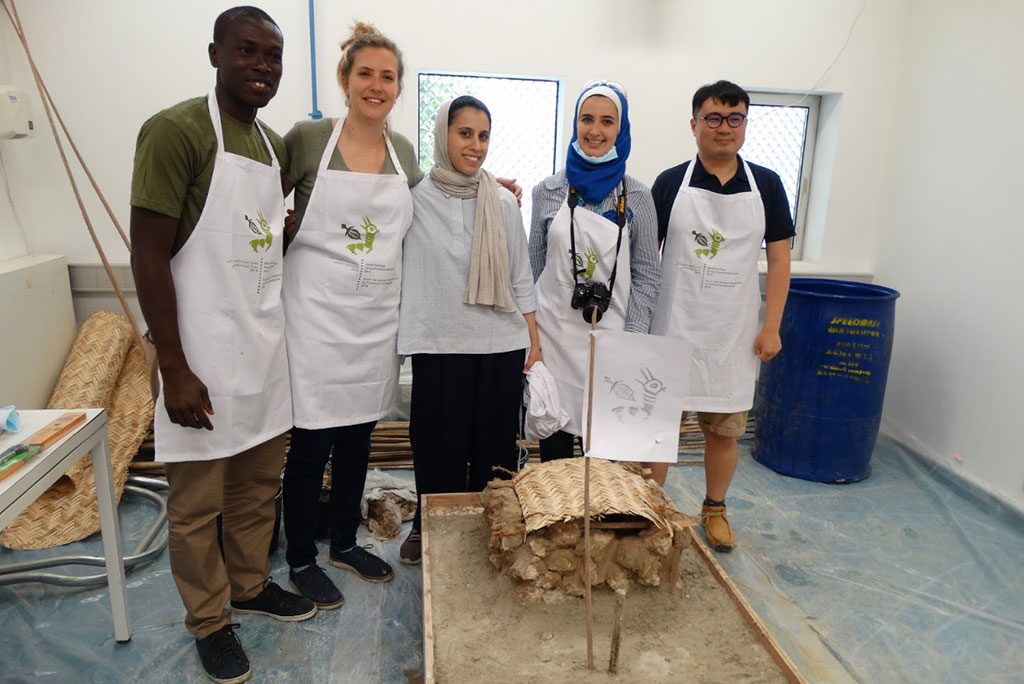Chloe Porter is a Buildings Casework Officer here at HES. She recently represented Scotland and the UK at UNESCO’s World Heritage Young Professionals Forum – in Bahrain!
Over the course of ten days, Chloe took part in a series of engaging workshops, and World Heritage Site visits, with 29 other young delegates from all over the world.
We caught up with Chloe after her whirlwind trip and here, she shares her tips for how young people can get involved in shaping the future of World Heritage.
1. Build networks in World Heritage
When embarking on a career in World Heritage, building a good network of contacts along the way can really help! This could be within the organisation you work for, or with former teachers, lecturers and colleagues. Knowing people in different places can be a real benefit for unearthing great opportunities.
I completed my MSc in Conservation of Monuments and Sites in Leuven, Belgium. It was my former supervisor who emailed me to tell me about UNESCO’s World Heritage Young Professionals Forum. I’d never heard of it before, so I definitely owe the Raymond Lemaire International Centre for Conservation a box of Bahraini dates!
Any kind of forum or conference is a great place to grow your network too. In Bahrain, I joined 29 other young heritage professionals from all over the world. They came from the likes of Palestine, Zimbabwe, India, Hong Kong, Bosnia and Herzegovina, Algeria, and Cuba!
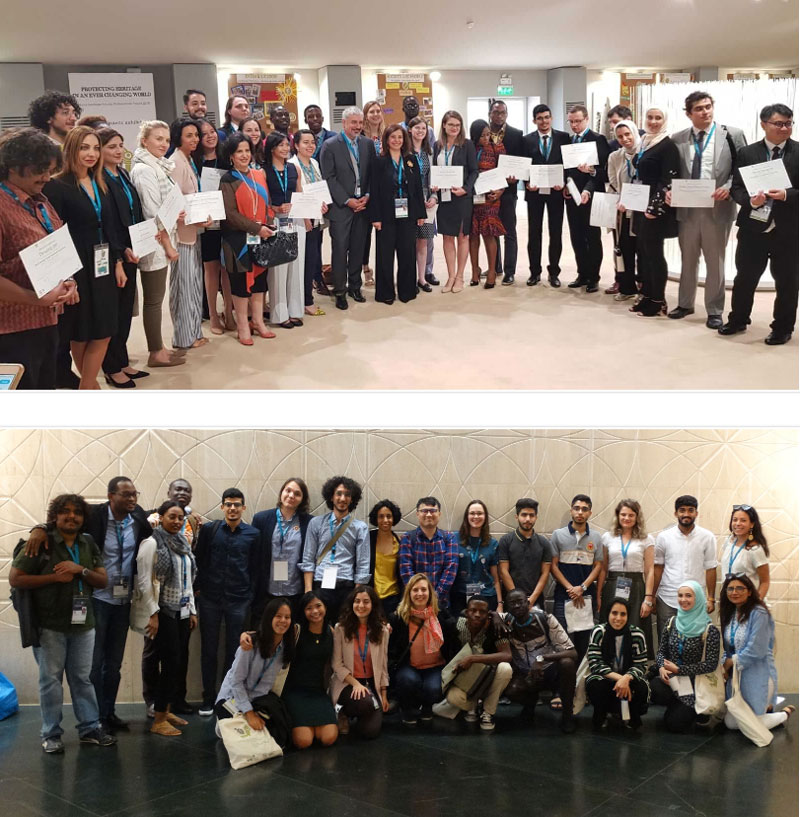
Network whenever you can: Chloe joined another 29 delegates from across the world at the World Heritage Young Professionals Forum in Bahrain! (Credits: Diadrasis)
2. Share ideas & learn from others
Having such a network of people at home and abroad is a great way to learn from others. This is really important in World Heritage, as each site faces its own unique challenges. It’s good to get different ideas!
The theme of the forum in Bahrain was a really interesting one: “Protecting Heritage in an Ever-Changing World”. I was able to share the challenges facing our World Heritage sites here in the UK, as well as the changes we’ve made to improve the way we protect them.
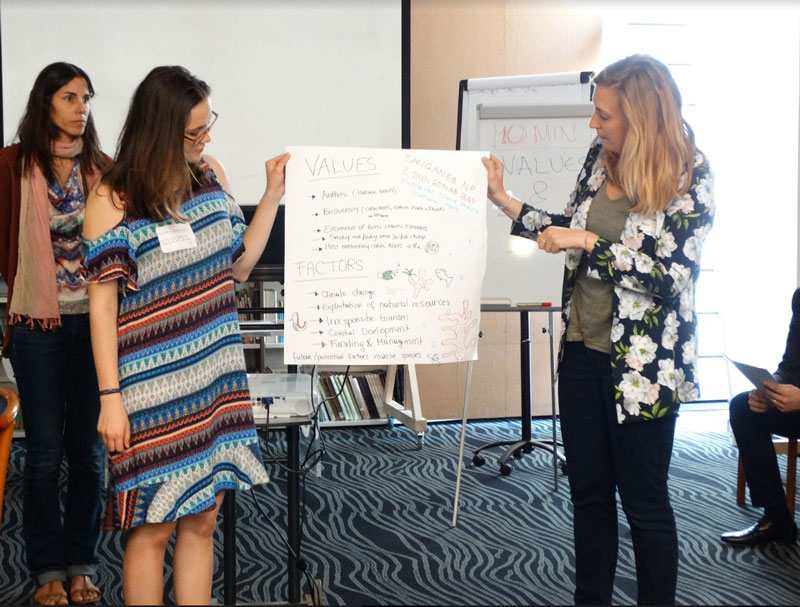
Chloe (right) presents results of round table discussions on the effects of climate change on heritage sites.
We took part in a range of activities, allowing us to learn how different countries approach common issues. We looked at the Pearling World Heritage Site in Bahrain as a case study. This was then the basis for round-table conversations on society and history, materials and places and new technologies.
We also discussed sustainable tourism and climate change. These are two issues that most World Heritage sites deal with – even in Scotland. So I was really keen to see if delegates had any tried and tested solutions!
Overall, my most important takeaway from my experience in Bahrain was how we can learn from others. Being able to discuss issues such as climate change, sustainable tourism, and under-representation of certain regions on the World Heritage list was my personal highlight.
3. Be open-minded
Today’s young people are tomorrow’s leaders. It’s vital there are opportunities for young people to learn about complex decision making processes. Decisions about World Heritage involve lots of different issues that require consideration and understanding.
In Bahrain – before the real thing – we took part in a simulation of the World Heritage Committee. The World Heritage Committee decides which of the nominated sites are given World Heritage status.
We each had roles as representatives at this year’s World Heritage Committee, or as members of advisory bodies. Some of us played the Chair or Director General of UNESCO, as well as members from NGOs.
This simulation centered around a fictional natural World Heritage site called ‘Magic Lands’. Its boundary spread between two made-up countries called Fantasia and Atterata. Our Committee had to discuss what we thought of the fracking taking place to the north of the site.
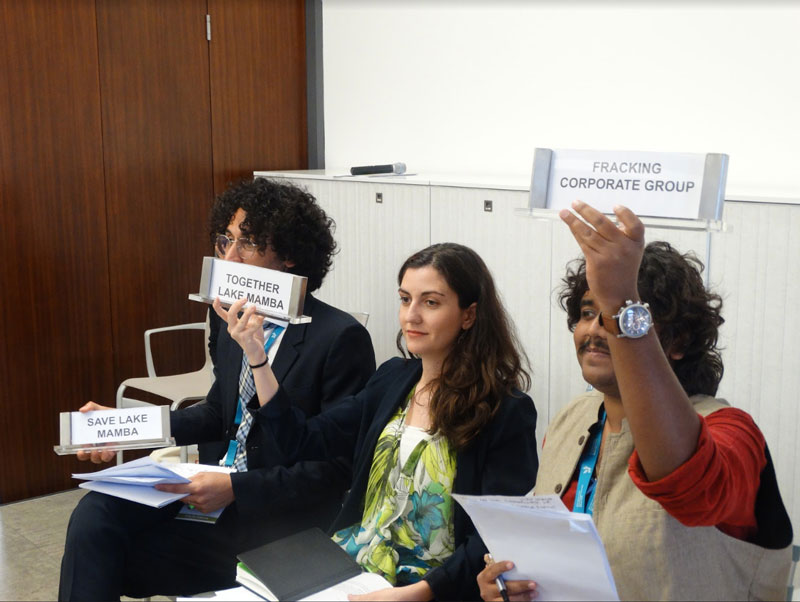
Forum delegates played the roles of fictional NGO representatives during the World Heritage Committee simulation exercise. (Credits: Diadrasis)
Before we started, we were allocated a delegate position to stick to and promote. I represented Uganda, and had to prepare a speech to present the country’s position on the subject! In my case, I had to voice Uganda’s concerns over the fracking near the World Heritage Site in Fantasia. I also wanted a new portion of the natural site added to the inscribed boundary.
It was quite amazing because you got to debate and argue your point. You’d watch as some countries got together on one view, while others objected to protect their own interests. It was eerily similar to what happens at the real World Heritage Committee!
Having an open mind, and seeing things from different perspectives, is really important for negotiating and decision-making. You don’t have to attend a conference or forum to practice this though. Taking part in any debating activity can really help to broaden your understanding.
4. Give things a go!
Chances to participate in international forums can be quite rare – but I’d definitely recommend giving any opportunity a shot. Since 2005, this was the first time that the UK had had a representative at UNESCO’s WHYPF. There were 990 applicants for only 30 delegate positions at the forum – so just give it a go! You won’t know until you try!
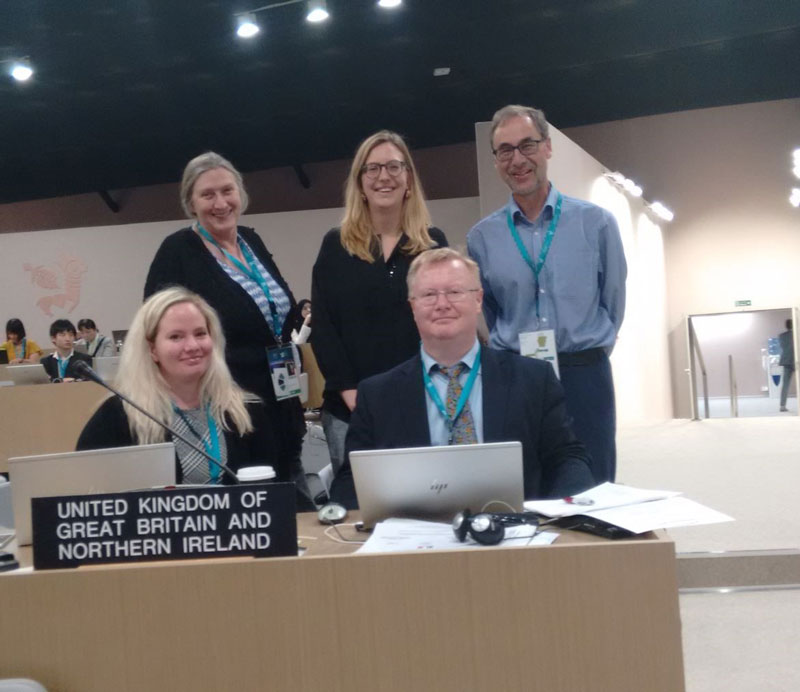
Not the usual ‘9 to 5’: There was just enough time for Chloe (centre) to meet with the UK Delegation at the World Heritage Committee!
I think it’s important that young professionals, and young people generally, have more opportunities like these. They can open your mind to what else is happening out there. They allow you to engage with other young professionals internationally on important issues. Opportunities like these give you a broader outlook on things, and I feel everybody can benefit from this.
UNESCO’s World Heritage Young Professionals Forum takes place annually. Applications are open to anyone working in heritage roles aged between 23 and 30 years old. Next year’s forum will be held in Baku, Azerbaijan, so I’d definitely recommend you apply if you can!

